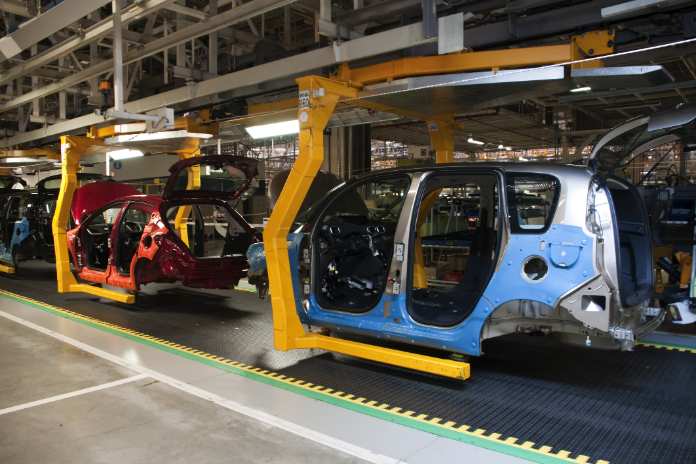Volkswagen (FRA:VOW3) recently reported a significant 29% decline in its second-quarter profit, attributing this setback primarily to the adverse impact of ongoing tariffs. These tariffs, part of a broader trade conflict, have increased the cost of materials and disrupted supply chains, leading to a more challenging financial environment for the automotive giant.
The German automaker has been grappling with the repercussions of tariffs imposed by the United States and China, two of its largest markets. These tariffs have not only increased the cost of manufacturing due to pricier raw materials but have also led to a reduction in consumer demand as vehicle prices have subsequently risen.
Despite these challenges, Volkswagen has taken steps to mitigate the impact, such as attempting to pass some of the costs onto consumers and exploring alternative sourcing strategies. However, these measures have not been sufficient to offset the full impact of the tariffs, resulting in a noticeable dent in their profit margins.
Volkswagen’s CEO highlighted the need for strategic adjustments to navigate the current economic landscape. The company is focusing on efficiency improvements and cost-cutting measures as part of its broader plan to stabilize its financial performance amidst ongoing uncertainties.
In addition to internal measures, Volkswagen is also advocating for diplomatic solutions to the trade tensions. The automaker is hopeful that ongoing negotiations between the involved countries might lead to a resolution that could ease the burden of tariffs and foster a more favorable trade environment.
While the immediate financial outlook remains challenging, Volkswagen is optimistic about its long-term strategy. The company is investing heavily in electric vehicles (EVs) and digital transformation, viewing these areas as critical to its future growth and resilience. By pivoting towards sustainable mobility solutions, Volkswagen aims to capture a significant share of the burgeoning EV market.
The shift towards EVs is not without its challenges, especially given the high initial costs associated with developing and producing these vehicles. However, Volkswagen believes that economies of scale and advancements in technology will eventually lead to lower costs and higher profit margins in this sector.
In summary, Volkswagen’s recent financial performance underscores the complex interplay of global trade dynamics and industry-specific challenges. While the current tariff-related issues have impacted its short-term profits, the company’s strategic focus on innovation and sustainability positions it well for future success.
Footnotes:
- Volkswagen reported a 29% decline in profit due to increased tariffs and supply chain disruptions. Source.
Featured Image: Megapixl @ Mahroch



